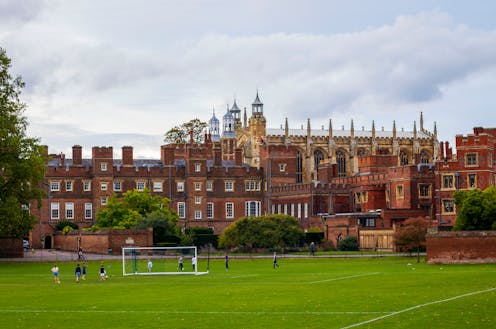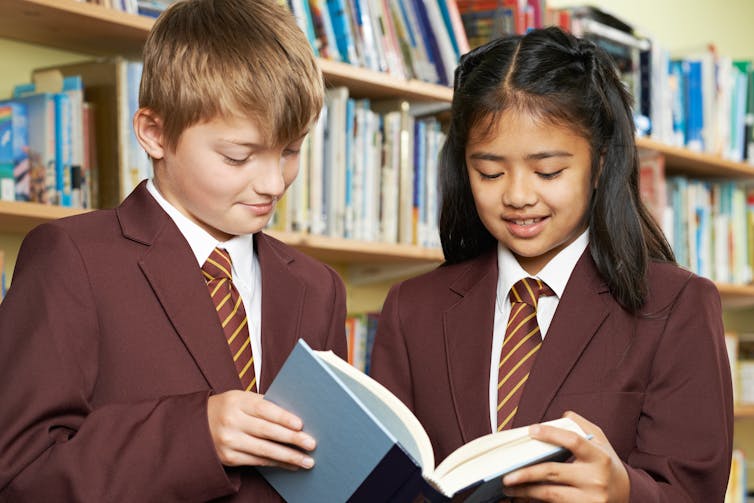
Private schools in the UK are VAT exempt, as are most education providers. This means that they do not have to charge 20% VAT on the school fees parents pay. The Labour party has confirmed its intention to end this VAT exemption for private schools if elected to government.
The party also proposes ending private schools’ exemption from paying business rates – additional taxation paid by businesses.
The most immediate objective of this policy is to raise funding from private school fees to spend elsewhere in education. The Labour manifesto estimates the revenue from applying VAT and business rates to private schools as just over £1.5 billion.
Labour proposes using this revenue for measures including supporting new nurseries, paying for more teachers, and funding mental health support in schools.
Want more election coverage from The Conversation’s academic experts? Over the coming weeks, we’ll bring you informed analysis of developments in the campaign and we’ll fact check the claims being made. Sign up for our new, weekly election newsletter, delivered every Friday throughout the campaign and beyond.
But the policy will also make it somewhat harder for private schools to prosper financially. If schools raise fees, or even end up closing altogether, parents may choose to send their children to state schools instead.
However, this could have benefits for social cohesion, by reducing the segregation of students between schools according to wealth.
If fees rise and fewer families use private schools, then the numbers in the maintained sector will increase. Data analysis from the Financial Times suggests that the state sector would be able to accommodate these extra pupils. But numbers might be higher in certain areas, leaving local authorities scrambling to find places.
The cost of these extra places for the government would have to be subtracted from the envisaged £1.5 million revenue gained from ending VAT exemptions for private schools. There may be little increase in spending on schools, per pupil. There will just be a bit more money and a few more pupils.
However, there would be benefits for society and state schools if attendance at private schools declined. Local schools would represent the full range of residents more closely, not having a subset of the richest students routinely removed. Socio-economic segregation between schools could decline.
Schools would be more representative mini-societies, and this could have knock-on effects for pupil achievement: less segregation between schools could help lessen the attainment gap between richer and poorer pupils.

High-achieving private school students would also not do worse at state schools. The purported success of private schools in academic outcomes is, like with grammar schools, almost entirely a result of their intake and student background. This will not change.
The students doing well in exams at private schools will find similar success at state schools – and their families will have the money saved on fees to spend on private tuition and extra-curricular activities to help improve their chances.
Different types of private school
The popular image of a private school is often based on large and long-established boarding schools such as Eton.
These larger, older schools tend to be the ones with charitable status, and are perhaps more likely to have larger financial reserves. The larger schools are also more likely to recruit students from overseas. Students at these schools might well be hit by an increase in fees, but the schools would still have a large worldwide catchment to recruit from.
But many schools in the private sector are much newer, smaller and cheaper, and are day rather than boarding schools. It is these smaller private but not-for-profit schools that could be hardest hit by the removal of tax exemption.
What’s more, there are hundreds of fee-paying schools which cater for children with special educational needs, disabilities, and learning challenges. A threat to private special schools could put further pressure on state-maintained services, and even reduce the quality of overall provision.
Labour has said that local authorities who pay for children with an education health care plan to attend these schools will not have to pay the added VAT – assuming that the schools still exist. Many parents of children with special educational needs pay for their children to attend private schools, including these special schools, and under current plans they would have to pay the increase in fees. Which means that the existence of these special schools might be threatened anyway.
The number of pupils at private schools has remained at a very similar level for years in England despite significant fee increases. It is possible that the impact of this proposed policy on the sector itself would be minimal. But if voters give it a chance to be implemented, and the possible pitfalls are accounted for, it may have a positive impact on society.
Stephen Gorard does not work for, consult, own shares in or receive funding from any company or organisation that would benefit from this article, and has disclosed no relevant affiliations beyond their academic appointment.
This article was originally published on The Conversation. Read the original article.







